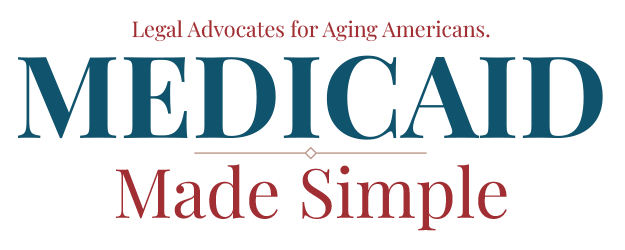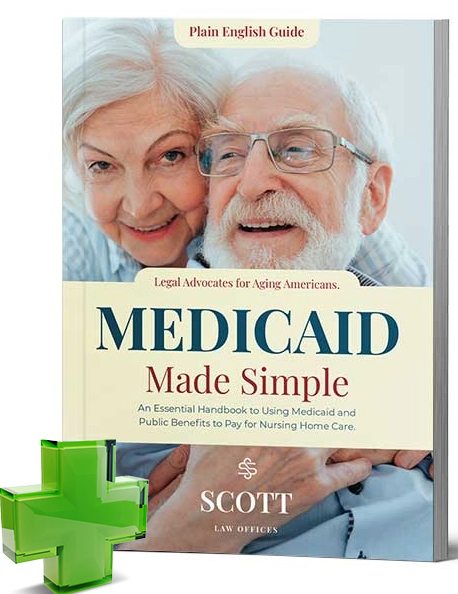The Role of a Medicaid Planning Attorney
If you're facing the high cost of long-term care for a parent or spouse, you're not alone. A skilled Medicaid planning attorney can help you protect family assets, qualify for benefits, and avoid mistakes that lead to denial or unnecessary spend-down.
Maybe someone just told you Medicaid can cover nursing home costs, but they didn't explain how to qualify. You might wonder which forms you need or what happens to your house or savings. This guide breaks it down so you can move forward with confidence.

Why Medicaid Planning Matters in Florida
Senior care in Florida can cost over $12,000 per month. Medicare won't cover it long-term, and most families can't afford to pay out-of-pocket indefinitely. Medicaid is the program that can help, but qualifying isn't simple, especially if you have income or assets above state limits.
That is where planning becomes critical. Medicaid has strict rules, but it also has powerful legal exceptions. When you work with a Medicaid planning attorney, the goal is to qualify without giving everything away.
What a Medicaid Planning Attorney Does
If you're searching for a Medicaid planning lawyer near me, here's what you can expect:
- Income and Asset Review: The attorney will review the senior's income and assets to determine eligibility.
- Protection Strategies: An elder law attorney can deploy various asset protection strategies to preserve your home, savings, and more.
- Legal Documents: The attorney can prepare a power of attorney or other legal documents.
- Qualified Income Trust (QIT): Your elder law attorney can prepare a QIT if your income is over the limit.
- Medicaid Applications: Attorneys can prepare Medicaid applications and deal with the Florida Department of Children and Families (DCF).
- Spousal Protection: An attorney can take measures to protect income and assets for the non-applicant spouse.
It is more than filling out forms. Medicaid planning is about building a strategy that fits your family's needs and gets results fast.
Florida Medicaid Eligibility: Income and Assets
To qualify for Medicaid long-term care coverage in Florida, you must meet both financial and medical criteria. As of 2025:
- Income limit: $2,829/month (gross) for an individual
- Asset limit: $2,000 in countable resources
These numbers change annually, and certain exemptions apply. For example, your home may be exempt if a spouse still lives there. Seniors can convert IRAs and savings to non-countable assets with proper planning.
You can view the official Florida Medicaid eligibility guidelines for current figures, but interpreting them without legal help can be risky.
What If Your Income Is Too High?
Florida is an "income cap" state. That means if your income is even one dollar over the limit, you won't qualify. However, creating a Qualified Income Trust (QIT) offers a path to eligibility. It is one of the most common tools used in Medicaid planning.
As your attorney, I'll help you:
- Set up the QIT
- Assign the right trustee
- Fund the account properly
- Make sure it passes all requirements
Getting this right the first time is critical to avoid delays.
What If You Already Gave Away Assets?
Florida has a five-year lookback period. That means Medicaid will examine any gifts or transfers made in the last 60 months. If you transferred money or property, it could result in a penalty period. During the penalty period, you'll remain ineligible for benefits.
The good news is that this issue is often fixable with legal help. I've worked with families to reverse transfers, restructure assets, and legally resolve penalties.
You Don't Need to Spend Everything to Qualify
One of the most harmful myths is that you have to be broke to get Medicaid. That simply isn't true. With the right strategy, you can qualify while keeping your spouse's income, protecting your home, and preserving key retirement savings.
Too many families wait until they've already spent $50,000 or more on care before calling. With earlier planning, families can avoid most of these problems.
FAQs: Medicaid Planning and Eligibility
What is Medicaid planning?
Medicaid planning is the legal and financial strategy used to qualify for Medicaid benefits while protecting as many assets as possible. It often involves trusts, asset conversion, and careful application management.
What is the Medicaid form I need to fill out?
Florida requires a detailed Medicaid application through the Department of Children and Families (DCF). There isn't one single "Medicaid planning form." You'll also need financial documents, legal authorizations, and income verifications. Legal assistance can reduce errors and speed up approval.
How soon should I talk to a Medicaid attorney?
The sooner, the better. Planning gives you more legal options and avoids common pitfalls. But even in a crisis, it's not too late to act. I often work with families who thought they missed their chance, only to qualify with the right support.
Start Planning Before It's Too Late
Whether your parent just entered a nursing home or you're trying to protect your spouse's financial future, now is the time to act. Medicaid rules are complex, and delays cost money. I'll help you understand your options, create a strategy, and get results.
You don't need to do this alone. Schedule your consultation today and take the next step toward peace of mind.


"Sean Scott has been instrumental for my family, aiding my elderly parents and recently, my wife with Alzheimer’s. His team's unparalleled expertise and compassion have been a beacon during our toughest times. I consistently recommend Sean to fellow caregivers for his invaluable support and guidance."
Get Your Free PDF
Fill out the form to receive your free PDF on Medicaid Planning.


